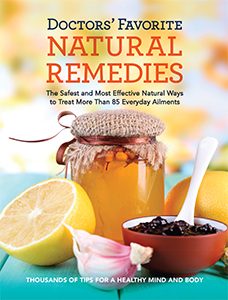Benefits of CoQ10: How Coenzyme Q10 Can Keep Your Heart Healthy
Updated: Jun. 20, 2016
CoQ10 is a powerful compound that lowers blood pressure and improves circulatory health.

The alternative name for coenzyme Q10 is ubiquinone, which reflects the fact that it is found ubiquitously throughout the body, but especially in the heart and muscle tissue. The body can synthesize its own coenzyme Q10 from the amino acid tyrosine; nevertheless levels of coenzyme Q10 decrease with age. In the diet coenzyme Q10 is found in meat and fish and in lesser amounts in broccoli, cauliflower, nuts, spinach, and soy.
How CoQ10 Works
Coenzyme Q10 has two main roles in the body, first as an important player in the creation of energy within mitochondria, the energy powerhouse of cells. The second role of coenzyme Q10 is as an antioxidant, protecting all cell membranes, including those of the mitochondria, from being damaged by free radicals. Deficiency signs may include fatigue, muscle ache and pain, and gum disease.
Coenzyme Q10 has been thoroughly researched since the 1970s, particularly with respect to its role in protecting against heart disease. One study showed that patients taking coenzyme Q10 prior to heart surgery had a shorter hospital stay and faster recovery time. Other heart-related conditions where coenzyme Q10 has been shown to be useful include high blood pressure, ischemic heart disease, mitral valve prolapse, and congestive heart failure.
If you are taking statins, ask your doctor if it might be worth taking coenzyme Q10. Statins are often prescribed to lower cholesterol levels, because they inhibit an enzyme involved in the synthesis of cholesterol. Unfortunately, this same enzyme is involved in the synthesis of coenzyme Q10 in the body. This explains why muscle pain, muscle soreness and fatigue, which are commonly caused by statins, can be relieved by coenzyme Q10.
Coenzyme Q10 is also recommended for gum disease, with improvement noticed in as short a time as one week. In one small study a supplement of coenzyme Q10 was found to alleviate symptoms of tinnitus in patients who initially had low levels of coenzyme Q10 in their blood.
How to Use CoQ10
There is no official Recommended Dietary Allowance (RDA) for coenzyme Q10. Follow label instructions or take as professionally prescribed. It is generally found in capsule form. For gum disease, take orally as well as applying topically to the gums.
Safety First
Coenzyme Q10 is relatively safe, although it may interact with certain medications such as warfarin, so check with your doctor if you are taking any kind of blood-thinning or anticoagulant medication. Coenzyme Q10 has not been widely tested during pregnancy or breastfeeding so it is best avoided or used only under medical supervision during these periods.
Where to Find CoQ10
Coenzyme Q10 can be found in health food stores and pharmacies or may be available from your doctor.

Get More Natural Remedies Doctors Approve!
The book Doctors’ Favorite Natural Remedies offers effective ways to treat more than 85 health conditions and evaluates the most commonly used alternative therapies and supplements. Learn more and buy Doctors’ Favorite Natural Remedies here.